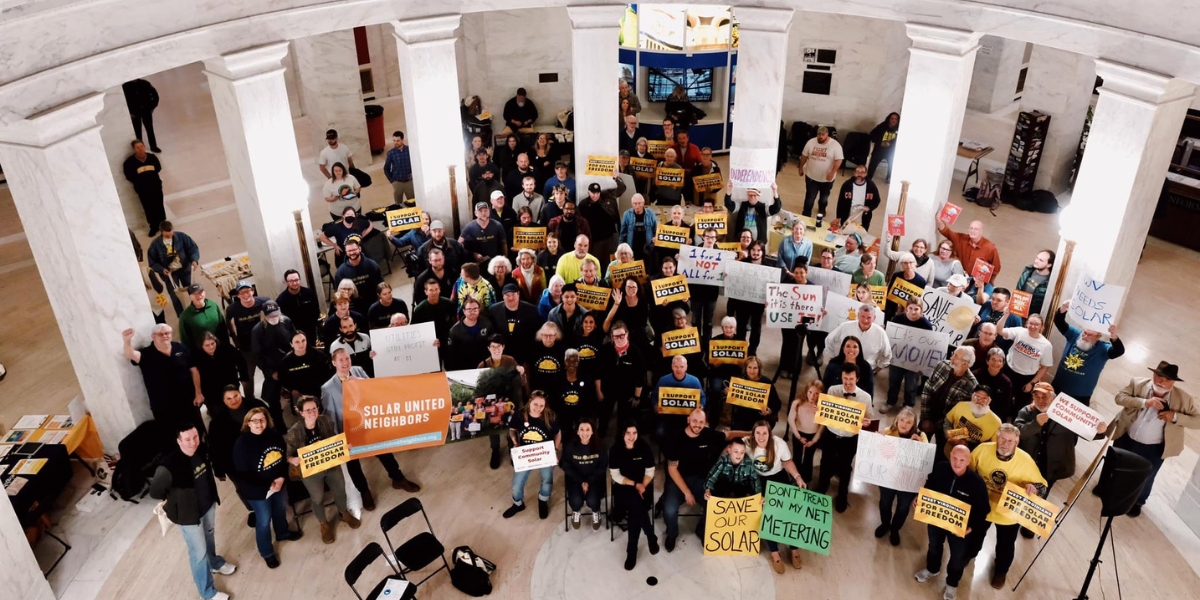By Quenton King
West Virginia is rough in the winter, and not just because of the cold. Since I moved back to the state in 2020, the culture war has been in full swing. LGBTQ rights and women’s health care are under threat. Harm reduction has been attacked. It is difficult to even have a serious conversation about environment and climate policy at the state level.
(And of course they haven’t contained the bad to just winter, like when the Legislature banned abortion in late summer of 2022.)
Most bills that are introduced, good or bad, don’t pass. But it’s hard to ignore some of the rhetoric I hear in committee meetings and on the House and Senate floors, or the clearly racist, bigoted, borderline fascist bills that some lawmakers have no qualms putting their names behind as they’re introduced.
I don’t know quite where I fall on the debate about whether it’s better to draw attention to awful bills or to just ignore them outright. As a person of color, I can empathize with marginalized communities who feel threatened when bills are introduced that are built, by design, to threaten their existence. But that’s a commentary for a different day.
All that is to say that the vibes are off annually around this time in West Virginia. However, two events in the last month have made me feel more optimistic than usual about the future when it comes to environmental advocacy at the legislature. I’ll focus primarily on one.
This past weekend I attended the Save Our Solar Rally at the Capitol, hosted by West Virginians for Energy Freedom and other solar advocates. The rally was organized to call attention to the need to allow community solar in West Virginia (which I wrote about last year) and underscore the importance of protecting net metering, which is currently facing uncertainty at the Public Service Commission.
Net metering plays an important role in rapidly expanding solar energy and cleaning up our grid. The total cost for purchasing and installing panels for a home can often cost between $20,000 and $40,000. The homeowner should break more than even over the lifetime of the solar system thanks to reduced power bills. That could take 30 years. Net metering allows solar owners to sell their excess power back to the grid, which can make the prospect of going solar more cost-effective.
One of the state’s two main electric providers has asked the PSC to halve the rate it credits solar customers going forward. The utility’s reasoning is that people without solar are footing the bill for those who participate in net metering, which follows a national trend that has seen net metering under attack. California’s version of the PSC voted to reduce net metering rates effective April 2023. In the short time since, solar installs have already plummeted, and an estimated 17,000 jobs could be lost, according to industry estimates.
Compared to its uptake in California, solar is still a relatively small industry in West Virginia. But the message from the solar rally was clear: the PSC and other policymakers should recognize the economic, environmental and grid-stabilizing benefits of distributed solar, and do everything it can to encourage it, rather than choke the life out of it while it’s still a growing industry.
But back to the point — I left the rally feeling hopeful because of how many people came to the Capitol on a Saturday in January to be around others who care about the environment and affordable, clean energy. A local band performed, speeches were given, connections were made. Current workers in the solar industry and homeowners with panels put the stakes in perspective — the solar industry provides good paying jobs across the state, and homeowners have already seen the benefits of their power bills cut.
Polling from Solar United Neighbors shows that West Virginians support expanding solar access through community solar and want to protect net metering. If the rally is any indication, that polling is correct.
The other event that sparked some joy kicked off the legislative session: On Jan. 9, West Virginia Rivers and other environmental organizations held an event to commemorate the 10th anniversary of the water crisis, when Freedom Industries spilled a toxic chemical into the Elk River and threatened the water of 300,000 West Virginians.
You’d think this would have been a solemn event. And yes, while it was a space for deep reflection, it was encouraging to be in the same room of so many people who care passionately about protecting our air, land and water for current and future generations.
Winter in West Virginia might be rough, but there are still bright spots to remind you that, against all odds, like-minded people are working together to bring positive change for the future.
Now residing in Charleston, West Virginia, Quenton King is originally from the state’s Eastern Panhandle. He works in environmental policy. He is on the advisory board of Reimagine Appalachia.
This article was originally published by West Virginia Watch, westvirginiawatch.com

